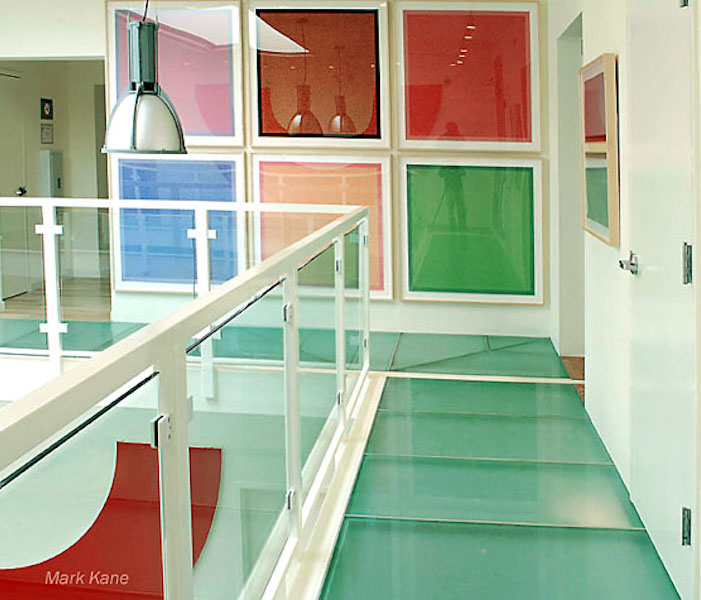Glass Floor Panels For Sale: Are Glass Floors Expensive?
Glass Floor Panels For Sale: How Expensive Are They?
Glass floors are extraordinary. Prices vary depending on your location, the type of glass and customization chosen, the difficulty of the install, and several other factors. Our floors redefine the concept of space, inviting you to explore a unique blend of design, functionality, and modern aesthetics. GlassWalk™ floors are a canvas for creativity, offering you the opportunity to reimagine interior spaces and open up new dimensions of design. Whether you’re seeking to infuse a sense of luxury into your home or make a bold statement in a commercial setting, our glass floors are your blank slate.

The type of glass used affects the cost. Some types of glass are more durable and able to withstand heavy loads, which can contribute to a higher cost. Thicker and stronger glass is more expensive. Glass used for flooring needs to be able to support the weight of people and objects without breaking, so thicker glass may be necessary for certain applications.
Larger glass panels or custom shapes may require more precision during manufacturing, which can increase costs too. Glass floors often require additional structural support to ensure safety and stability. The cost of reinforcing the underlying structure can add to the overall expense. Installing glass floors can be complex and labor-intensive, requiring specialized skills and equipment. The cost of installation will depend on factors such as the location, accessibility, and intricacy of the design. Customization options such as tinting, patterns, and textures can also add to the cost.
Local factors, such as labor costs, can impact the overall expense of installing a glass floor. Glass floors require regular cleaning and maintenance to keep them looking their best. As a rough estimate, glass floors can cost anywhere from a few hundred to several thousand dollars per square foot.
What Kind of Glass Can I Walk On?
Several types of glass are suitable for use in glass floors, each with its own set of properties and strengths. The choice of glass depends on factors such as the intended use, load-bearing requirements, and design preferences. Here are some common types of glass used in walkable glass floors:
Tempered Glass: Tempered glass is one of the most common types of glass used in walkable surfaces. It is heated and then rapidly cooled during the manufacturing process, making it stronger and more resistant to breaking compared to regular glass. Tempered glass is known for its safety features: if it does break, it shatters into small, relatively harmless pieces. This makes it a suitable option for high-traffic areas and spaces where safety is a concern.
Laminated Glass: Laminated glass consists of two or more layers of glass with an interlayer (usually made of polyvinyl butyral or EVA) sandwiched between them. This interlayer holds the glass together even if it breaks, preventing it from shattering into large, dangerous pieces. Laminated glass is often used in situations where safety is paramount, as it retains its structural integrity even when cracked.
Low Iron Glass: Low iron glass, also known as ultra-clear glass, has reduced iron content, which minimizes the greenish tint that is often visible in regular glass. This type of glass provides exceptional clarity and transparency, making it an excellent choice for applications where aesthetics are crucial.
Acid-Etched Glass: Acid-etched glass is treated with acid to create a frosted or textured appearance. It offers a level of privacy and diffuse lighting while maintaining a stylish and unique look. Acid-etched glass can be used in areas where slip resistance and privacy are important.
Anti-Slip Glass: These coatings enhance traction, reducing the risk of slipping. Anti-slip glass is particularly suitable for areas prone to moisture, such as bathrooms and poolside walkways.
When considering the type of glass for a walkable floor, it’s crucial to consult with us first. We can help you select the appropriate type of glass based on your specific requirements, load-bearing needs, safety considerations, and aesthetic preferences. Keep in mind that the type of glass used will also influence the cost, so it’s important to find the right balance between functionality, aesthetics, and budget.
Crafted with precision and engineered for durability, our glass floors are the epitome of craftsmanship. We offer a selection of glass types, each tailored to meet specific needs — from the tempered strength that defies pressure to laminated layers that assure safety. Our commitment to quality ensures that you’ll have a surface that stands the test of time.
